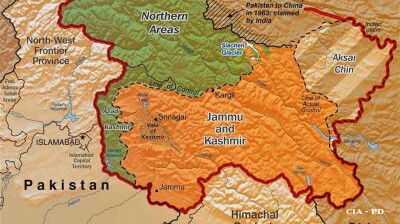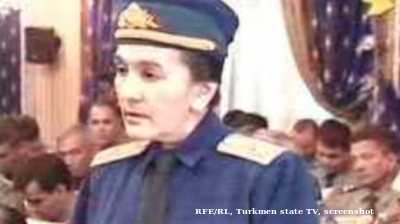PANNIER: Sparks fly in Moscow, Tashkent relations as consulate calls on Uzbeks to stay out of Russian Army

The start of 2024 saw some testy exchanges between Russian and Uzbek officials that then continued at more or less the same level throughout the year until September, when tensions noticeably increased.
The most recent flare-up ignited when Uzbekistan’s consulate in the Russian city of Kazan issued a statement calling on Uzbek citizens working in Russia not to join the military of a foreign government. For an Uzbek, fighting in a foreign conflict or joining another country’s armed forces is punishable by up to 10 years in prison back home, the counsulate emphasised.
Several days earlier, a 56-year-old man born in Uzbekistan had been convicted of being part of Russian forces fighting in Ukraine. He was sentenced to three years in prison. The man had enlisted in the Russian military in exchange for Russian citizenship and was sent to fight in Ukraine, where he was wounded. He returned to Uzbekistan to recover from his injuries and found himself on trial.
Sergei Mironov, leader of the faction A Just Russia – For Truth in Russia’s State Duma, the lower house of parliament, responded to the statement put out by the Uzbek consulate.
On October 19, Mironov noted on X: “The Consulate General of Uzbekistan in Kazan called on Uzbek citizens not to join the ranks of the Russian Army.”
Mironov asked why the consulate did not tell Uzbek citizens to forego social benefits they are receiving in Russia and referred to those who “won’t defend the country that feeds you.”
Mironov called for a visa regime to be imposed on citizens of Uzbekistan (Uzbek citizens can currently visit Russia for up to 90 days on a visa-free basis).

Cutting remarks. Alisher Qodirov talked about earning rights through hard work, not violence (Credit: AlisherKasimov, cc-by-sa 1.0).
On October 20, Alisher Qodirov, head of Uzbekistan’s Milli Tiklanish (National Revival) party and also deputy speaker of the lower house of Uzbekistan, the Oliy Majlis, gave an answer to Mironov’s remarks.
“A nation as blessed as the Uzbeks earns their rights by hard work, not violence,” he said.
Qodirov added: “The defence of Russia is the business of Mironov, his sons, sons-in-law and grandchildren. As far as I know, Russians also consider the defence of their homeland a sacred duty, just like Uzbeks.”
Another Oliy Majlis lawmaker, Bobur Bekmurodov, also replied to “Tovarishch” (Comrade) Mironov, saying: “Such aggressive rhetoric only worsens bilateral relations.”
Former Uzbek deputy Rasul Kusherbayev said: “Unfortunately, these words from a high-ranking politician show that the Russian side is looking for an excuse to break relations with Uzbekistan.”
Kusherbayev asked: “Would Russian diplomatic missions have remained silent if Uzbekistan had sent Russian citizens working on its territory to fight in a war for Uzbekistan’s interests?”
While all this was happening, the first deputy speaker of Uzbekistan’s Oliy Majlis, Akmal Saidov, was taking a jab at Russia on a different issue.
On October 18, Saidov spoke about Uzbekistan’s international partnerships.
He mentioned specifically that Uzbekistan had no plans at this time to move from holding observer status to full membership of the Moscow-led Eurasian Economic Union (EEU), a trade bloc that groups Russia, Armenia, Belarus, Kazakhstan and Kyrgyzstan.
Saidov’s rebuff to joining the EEU was the second slight Russia had suffered from a Central Asian nation in a 48-hour period.
On October 16, Kazakh presidential spokesman Berik Uali announced that Kazakhstan would not be seeking membership in the BRICS economic group at the organisation’s summit in Kazan, Russia on October 22-24.
Russia had been prodding Kazakhstan to join BRICS, which was founded by Brazil, Russia, India and China in 2009, and inducted South Africa in 2010.
On October 17, Russia announced it was imposing a ban on imports of Kazakh grain and other agricultural products.
The Moscow Times headline article that day sought the whole story, writing: “Russia has banned the import of vegetables from Kazakhstan after Tokayev’s statement about his refusal to join BRICS.”
In Tashkent on October 18, Saidov said: “We carefully studied more than 1,000 different documents of [the EEU]… and came to the conclusion that today, it is in the interests of Uzbekistan to maintain observer status.”
Saidov also noted that Kazakhstan seems to have “received very few benefits from joining the EEU.”
All this happened just a few weeks after Qodirov and Kusherbayev angrily replied to comments made by Russian Foreign Ministry spokesperson Maria Zakharova.
On September 23, a video was posted on social media showing a teacher in Tashkent beating a boy during a Russian language course.
The boy’s mother wrote on Facebook that the teacher was speaking Uzbek the whole time while conducting a Russian-language lesson and that when her son asked for the lesson to be taught in Russian, the teacher struck him.
On September 25, Zakharova said: “The content of the video cannot but cause extreme concern and sympathy for the child.” She requested an official explanation from Uzbek authorities.
Qodirov answered the following day, saying: “The rights of the child were violated in a school… of Uzbekistan in relation to a citizen of our country, and measures will be taken in accordance with our laws.”
He continued that Russia should occupy itself with “its own internal affairs, and not worry about our internal affairs.”
The deputy first chairman of Uzbekistan’s Writers’ Union, Minhojiddin Mirzo, demanded Zakharova apologise and asked: “Do they [Russia] still consider Uzbekistan as their province?"
Kusherbayev said Zakharova should be at the top of Uzbekistan’s “undesirable foreigners” list.
Uzbekistan’s law on “undesirable foreigners” was passed by the Senate, the upper house of the parliament, on September 20. It targets foreigners who make comments that “contradict the state sovereignty, territorial integrity and security of Uzbekistan,” incite “interstate, social, national, racial and religious hatred,” or “humiliate the honour, dignity or history of the people of Uzbekistan.”
Uzbek officials have never named any person or persons in particular as likely targets for the list of “undesirable foreigners”, but there is speculation that the motivation for the law was earlier remarks from Russians.
On December 20, 2023, Zakhar Prilepin, a Russian nationalist who is also a member of the A Just Russia – For Truth party, told a Moscow press conference: “These territories, from where migrant workers come to us, should simply be annexed entirely… Uzbekistan, for example.”
Question of existence. Comments made by Russian historian Mikhail Smolin earlier this year prompted calls for a ban on rebroadcasting Russian TV programmes in Uzbekistan (Credit: NTV, video grab).
In late January, Russia’s NTV aired a programme with guest Russian historian Mikhail Smolin saying that Uzbeks as a people did not exist before the 1917 Bolshevik Revolution.
After Smolin’s comments, Qodirov called for the halting of rebroadcasts of Russian television in Uzbekistan, especially as the ethnic Russian population in the country “does not even reach 3%.”
In early September, before the incident with Russia’s Zakharova, Qodirov called for banning Soviet propaganda in Uzbekistan, referring to Uzbekistan’s time as a Soviet republic as a “sad period of our history.”
Russian officials and celebrities have also made unkind or irredentist remarks about Kazakhstan, in fact more often than about Uzbekistan.
Uzbekistan does not border Russia, while Kazakhstan has a 7,800-kilometre (4,847-mile) frontier with Russia, so it perhaps easier for Uzbek officials compared to their Kazakh counterparts to rebuke unwanted Russian commentary.
There’s little chance these tense exchanges will have much effect on Russian-Uzbek ties at the top levels of government.
Russia has contracts to annually supply Uzbekistan with up to 1mn tonnes of oil and, from a point in the near future, up to 11bn cubic metres of natural gas that Uzbekistan desperately needs.
Still, the spat is likely to push Uzbekistan to strengthen relations with other countries in the hope that one day, when someone in Russia says something unkind about Uzbeks or Uzbekistan, the authorities in Tashkent will pull the plug on Russian television, and possibly do more than that.
Features

Taliban visit to India upsets Pakistan, signals New Delhi's changing Afghan posture
Coinciding with the visit, Pakistan conducted military operations inside Afghanistan, followed by airstrikes on multiple border towns. Retaliation against Pakistan's police training facilities and border outposts followed.

Pakistan’s India-shaped chip on the shoulder, and why a peaceful coexistence is as elusive as ever
Pakistan must first redefine how it sees India - not solely as a threat to be contained but as a neighbour with whom coexistence is unavoidable. That psychological leap has eluded generations of Pakistani leaders.

Trump shocked by China’s move on rare earths, threatens more 100% tariffs
"Some very strange things are happening in China!" Trump wrote in a post on his Truth Social account on October 10, adding "They are becoming very hostile."

Ore wars – and the US dollar’s waning influence
Iron ore underpins almost all modern industrial economies; it is the raw material from which steel is forged, and China remains its dominant consumer.




